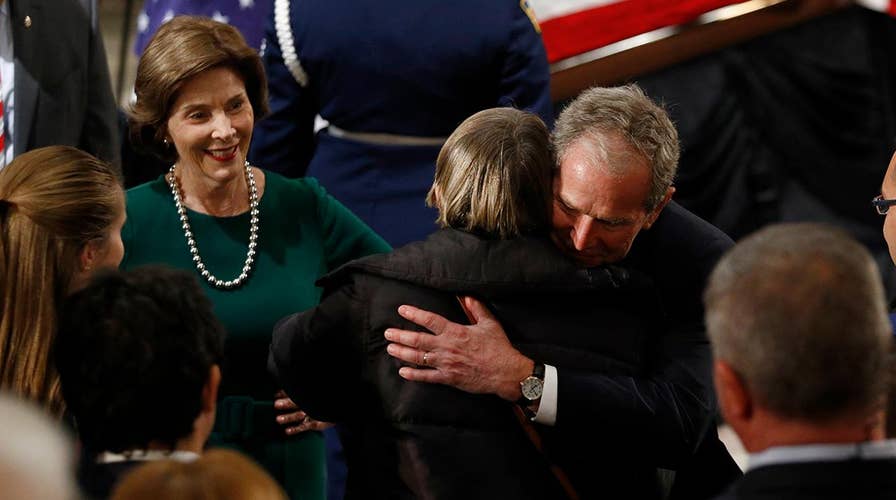George Herbert Walker Bush was a war hero, congressman, CIA director, U.N. ambassador, vice president, and – of course – president of the United States, among other jobs.
But as the nation mourns his passing and celebrates his life this week, President Bush can now also be called the uniter-in-chief.
I was 10 years old when Bush was elected in 1988. I remember him as a wartime president and the man who led our country through a historic inflection point after the fall of the Berlin Wall.
Even at a young age, I was able to see that President Bush did not always do what was easy, but he did always strive to do what he thought was right. He was the kind of public servant I hoped all would emulate.
Regardless of party affiliation, most Americans view our 41st president as a consummate statesman, a man who truly lived the calling of service over self.
In the last few days, I have noticed that partisanship has dissipated and has been replaced with patriotism in the wake of Bush 41’s death. It is hard not to admire and respect a man who defied his family to enlist in the Navy to defend his country during WWII.
After surviving being shot down over the Pacific, Bush not only continued to serve this nation, but also served his family and his faith.
While watching House Speaker Paul Ryan, Senate Majority Leader Mitch McConnell and Vice President Mike Pence pay tribute to President George H.W. Bush, I was paying more attention to President George W. Bush.
In that moment, I did not see the younger Bush as a former president of the United States or the namesake of a former president. To me, and I’m sure to most Americans, he was just a son grieving over the death of his father. It didn’t matter how I felt about his time in the White House; I just wanted to give him a hug.
In this era of pervasive polarization, I had to stop and ask myself why must it take the funeral of a former president to motivate Americans, particularly our leaders in Washington, to lay down political arms and unite as a nation?
As Americans we have gotten to know most of the Bush family, as many of them have lived their lives in the spotlight. We all recognize them, but this week we related to them. Sons and a daughter mourning a father; spouses comforting one another; and grandchildren missing their dearly beloved Gampy, as the Bush grandkids called Bush 41.
The cycle of life has been on display for the world to see through the eyes of the Bush family. And, in this precious moment, the bickering inside the Beltway has been silenced. The dignity of our nation is symbolized in the presence of a former first family.
I’ve found myself profoundly touched by the death of President Bush and what the life of this 20th century American icon means now to 21st century Washington. In this era of pervasive polarization, I had to stop and ask myself why must it take the funeral of a former president to motivate Americans, particularly our leaders in Washington, to lay down political arms and unite as a nation?
Maybe we are sentimental. Maybe we are inspired by reminders of a man’s dedication to our country. Maybe we lament a time when government worked. I’m not sure I have the answer, but I do think that our country and its leaders need to take this opportunity to pause and reflect on this question.
I feel like we are at a crossroads as the last WWII president passes on. We have a choice to trade patriotism and service for partisanship and selfishness. I suggest we all choose the former and reject the latter for the sake of our future.
And when Congress gets back to work, members should try to hold onto this feeling of unity ignited by our 41st president when tempted to return to business as usual in the swamp.

